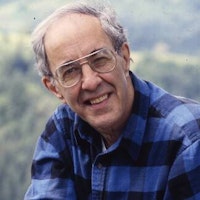It is amazing how many occasions present themselves in which I can choose gratitude instead of a complaint.
It is amazing how many occasions present themselves in which I can choose gratitude instead of a complaint.
Henri J. M. Nouwen

Choose Gratitude
Topic: Gratitude
“In the past I always thought of gratitude as a spontaneous response to the awareness of gifts received, but now I realize that gratitude can also be lived as a discipline. The discipline of gratitude is the explicit effort to acknowledge that all I am and have is given to me as a gift of love, a gift to be celebrated with joy.
Gratitude as a discipline involves a conscious choice. I can choose to be grateful even when my emotions and feelings are still steeped in hurt and resentment. It is amazing how many occasions present themselves in which I can choose gratitude instead of a complaint. I can choose to be grateful when I am criticized, even when my heart still responds in bitterness. I can choose to speak about goodness and beauty, even when my inner eye still looks for someone to accuse or something to call ugly. I can choose to listen to the voices that forgive and to look at the faces that smile, even while I still hear words of revenge and see grimaces of hatred.
Henri Jozef Machiel Nouwen, born on January 24, 1932, in Nijkerk, the Netherlands, was a significant figure in the realms of spirituality and theology. Nouwen's early life was marked by a deep inclination towards the Catholic faith, which led him to pursue a path in religious studies. He was ordained a Catholic priest in 1957 and subsequently continued his academic journey, studying psychology at the Catholic University of Nijmegen. Beyond his native Netherlands, Nouwen's quest for theological and psychological understanding took him to the United States, where he taught at institutions such as the University of Notre Dame, Yale Divinity School, and Harvard Divinity School. His experiences during these formative years not only shaped his theological perspectives but also laid the groundwork for his future writings.
Throughout his career, Nouwen was known for his insightful, compassionate approach to spirituality and mental health. His writings often explored the intersection of these two realms, emphasizing the importance of personal inner journey and the pursuit of a meaningful, spiritually enriched life. Nouwen's works were characterized by their accessibility and relevance to a wide audience, transcending denominational boundaries. His books, including titles such as "The Wounded Healer," "Reaching Out," and "The Return of the Prodigal Son," reflect a deep understanding of the human condition, resonating with readers from various walks of life. These writings have had a lasting impact, continuing to be widely read and appreciated for their depth and empathy.
Nouwen's life was not only marked by academic and literary achievements but also by a profound personal journey. In the later years of his life, he became a member of the L'Arche Daybreak community in Richmond Hill, Ontario, a community for people with intellectual disabilities. This period was significant in Nouwen's life, as it marked a shift from academia to a more hands-on approach to ministry and care. His time at L'Arche Daybreak deeply influenced his writings and his view of spirituality, emphasizing themes of community, vulnerability, and the value of every individual. Henri J. M. Nouwen passed away on September 21, 1996, leaving behind a rich legacy as a compassionate priest, a thought-provoking writer, and a dedicated advocate for those on the margins of society.
Gratitude as a Discipline
Nouwen, Henri J. M., and John Garvey. Henri Nouwen. Templegate, 1988, p. 26 [Circles of Love” on Father Henri J.M. Nouwen’s writings, 1988 (Gratitude and Action)].

Henri J. M. Nouwen
Copyright © 2017 – 2026 LuminaryQuotes.com About Us

Additional Henri J. M. Nouwen Quotes
“To be grateful for the good things that happen in our lives is easy, but to be grateful for all of our lives―the good as well as the bad, the moments of joy as well as the moments of sorrow, the successes as well as the failures, the rewards as well as the rejections―that requires hard spiritual work. Still, we are only truly grateful people when we can say thank you to all that has brought us to the present moment. As long as we keep dividing our lives between events and people we would like to remember and those we would rather forget, we cannot claim the fullness of our beings as a gift of God to be grateful for.
Let’s not be afraid to look at everything that has brought us to where we are now and trust that we will soon see in it the guiding hand of a loving God.”
―Henri J.M. Nouwen [Bread for the Journey, 1997 (The Spiritual Work of Gratitude)].
“Whether they confront evil in the world or support the good, disciplined actions are always characterized by gratitude.
To persevere without visible success we need a spirit of gratitude. An angry action is born of the experience of being hurt; a grateful action is born of the experience of healing. Angry actions want to take; grateful actions want to share. Gratitude is the mode of action undertaken as part of the discipline of patience.
The compassionate life is a grateful life, and actions born out of gratefulness are not compulsive but free, not somber but joyful, not fanatical but liberating. When gratitude is the source of our actions, our giving becomes receiving, and those to whom we minister become our ministers because in the center of our cares for others we sense a caring presence, and in the midst of our efforts we sense an encouraging support.”
―Henri J.M. Nouwen [Gratitude and Action].